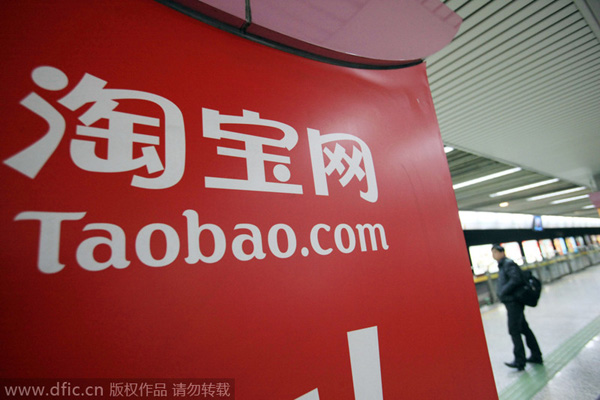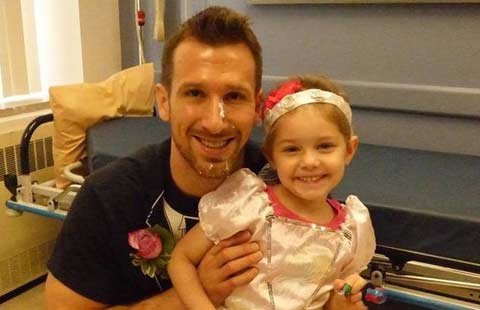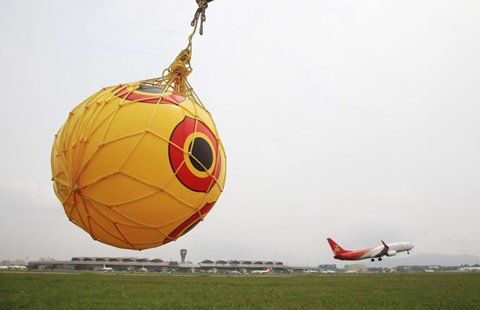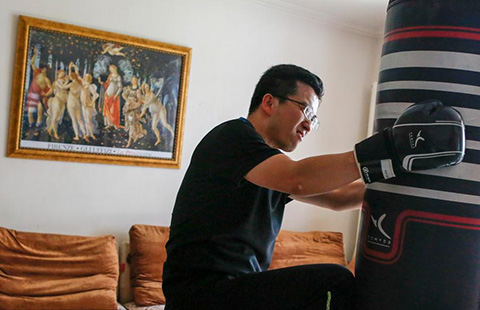Paternity tests and sperm donations go online
Updated: 2015-07-22 10:47
By Liu Jing(chinadaily.com.cn)
|
||||||||
 |
|
An advertisement for online shopping site Taobao.com of Alibaba Group is seen at a metro station in Shanghai, Nov 12, 2014. [Photo/IC] |
There seems no limit to what can be bought via the Internet and Taobao, China's largest online retailer, has pushed the boundaries further by offering services including paternity tests and sperm donation.
More than 20,000 men made appointments to donate sperm within three days after Taobao launched the offer. The website also attracted 137 customers for paternity tests and 4,060 for sperm fertility testing.
The deal, available from last Wednesday to Friday, was jointly offered by Taobao and KingMed Diagnostics, China's biggest third-party medical laboratory group.
Within 72 hours, 22,017 men had signed up for sperm donations at one of seven sperm banks nationwide. Some 69 percent of donors were from Beijing, Shanghai and Guangzhou.
Volunteers only need provide their name, last six digits of their ID card and email address to complete registration, avoiding an embarrassing first visit. Each volunteer will receive a subsidy of between 3,000 and 5,000 yuan ($483- 805) following their donation.
Paternity testing services, costing 699 yuan, were bought by 137 customers at much lower than the average cost of about 4,000 yuan.
After an order is lodged, a testing kit is sent to the customer who only needs to collect and send a saliva sample to a test center. The result will be ready in 10 working days.
Demand for the test is on the rise due to strict household registration policies and traditional values focusing on family ties. They are a prerequisite for getting a hukou, or household registration, for those without birth certificates.
The project is the first attempt at O2O (Online to Offline) business by Alibaba Health Information Technology Limited, formerly known as CITIC 21CN Company Limited.
The Hong Kong-listed drug information business was acquired by China's e-commerce giant Alibaba in April 2014.
Alibaba, also owner of Taobao, has set its sights on the online health market as more Chinese seek professional care, buy wellness products and use mobile gadgets to monitor their fitness.
The company rolled out a three-hour delivery service for healthcare goods in five major cities including Beijing and Shanghai in May. The service is expected to expand to 19 cities by the end of 2015, Alibaba said.

 Across America over the week (July 17- July 23)
Across America over the week (July 17- July 23)
 Unusual but true: 'Love' conquers all
Unusual but true: 'Love' conquers all
 Six dead as rainstorms wreak havoc in China
Six dead as rainstorms wreak havoc in China
 Guangzhou Evergrande stun Bayern in penalty shootout
Guangzhou Evergrande stun Bayern in penalty shootout
 10 domestic films to see this summer
10 domestic films to see this summer
 Tricks airports use to scare away birds
Tricks airports use to scare away birds
 The highs and lows of a stock market investor
The highs and lows of a stock market investor
 Culture insider: 7 things you may not know about Major Heat
Culture insider: 7 things you may not know about Major Heat
Most Viewed
Editor's Picks

|

|

|

|

|

|
Today's Top News
China eyes deepened cooperation with overseas NGOs
Beijing condemns Somali attack, mourns deaths
Monster Hunt breaks Chinese box office record
Olympic bid panel cites city's merits
Astronomers discover most Earth-like planet yet
Seattle Chinatown leader killed in shooting
Flight details of Obama's Kenya trip leaked
2 killed, several injured in Louisiana theater shooting
US Weekly

|

|






